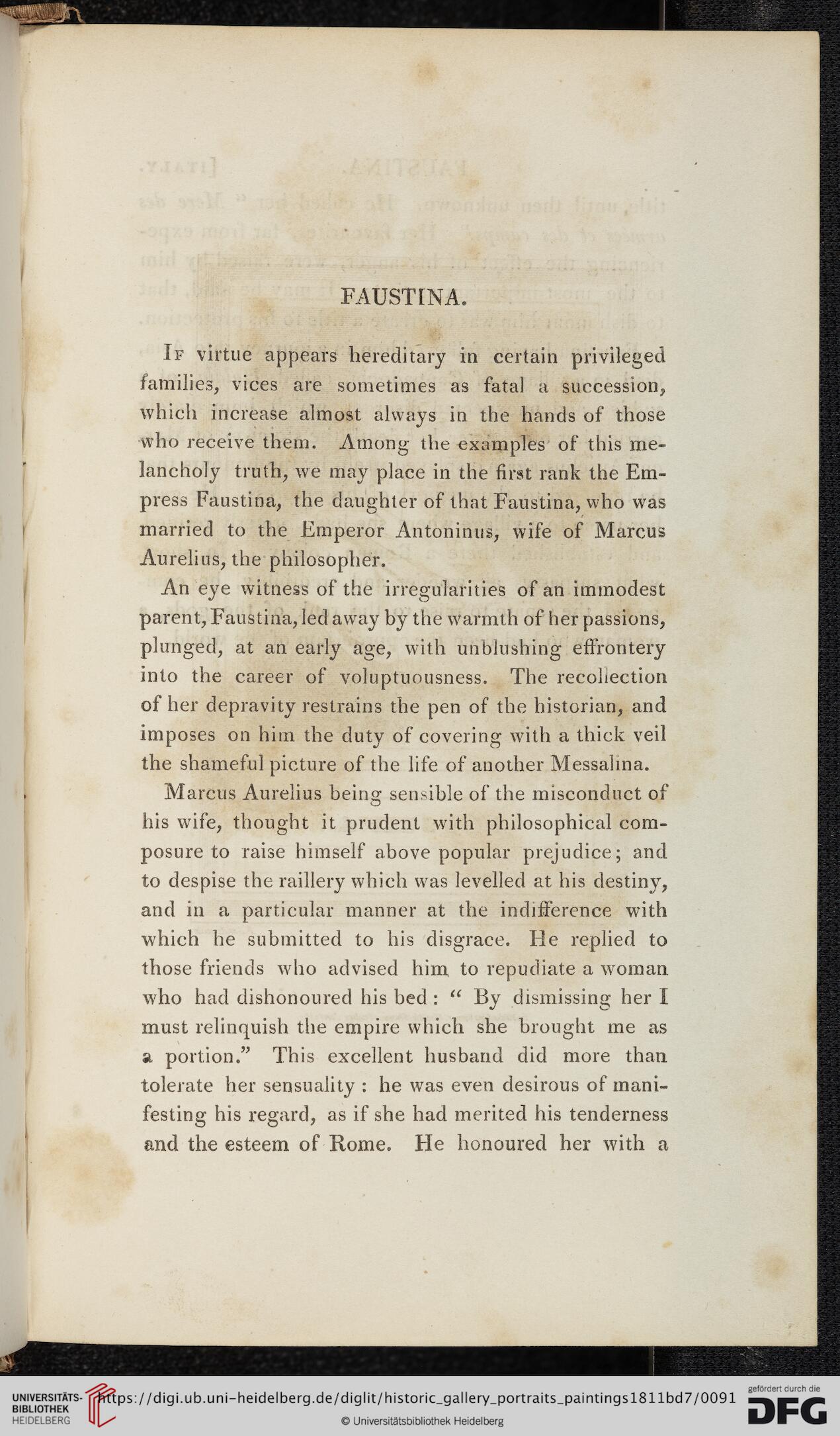FAUSTINA.
If virtue appears hereditary in certain privileged
families, vices are sometimes as fatal a succession,
which increase almost always in the hands of those
who receive them. Among the examples of this me-
lancholy truth, we may place in the first rank the Em-
press Faustina, the daughter of that Faustina, who was
married to the Emperor Antoninus, wife of Marcus
Aurelius, the philosopher.
An eye witness of the irregularities of an immodest
parent, Faustina, led away by the warmth of her passions,
plunged, at an early age, with unblushing effrontery
into the career of voluptuousness. The recollection
of her depravity restrains the pen of the historian, and
imposes on him the duty of covering with a thick veil
the shameful picture of the life of another Messalina.
Marcus Aurelius being sensible of the misconduct of
his wife, thought it prudent with philosophical com-
posure to raise himself above popular prejudice; and
to despise the raillery which was levelled at his destiny,
and in a particular manner at the indifference with
which he submitted to his disgrace. He replied to
those friends who advised him to repudiate a woman
who had dishonoured his bed: a By dismissing her I
must relinquish the empire which she brought me as
a portion.” This excellent husband did more than,
tolerate her sensuality : he was even desirous of mani-
festing his regard, as if she had merited his tenderness
and the esteem of Rome. He honoured her with a
If virtue appears hereditary in certain privileged
families, vices are sometimes as fatal a succession,
which increase almost always in the hands of those
who receive them. Among the examples of this me-
lancholy truth, we may place in the first rank the Em-
press Faustina, the daughter of that Faustina, who was
married to the Emperor Antoninus, wife of Marcus
Aurelius, the philosopher.
An eye witness of the irregularities of an immodest
parent, Faustina, led away by the warmth of her passions,
plunged, at an early age, with unblushing effrontery
into the career of voluptuousness. The recollection
of her depravity restrains the pen of the historian, and
imposes on him the duty of covering with a thick veil
the shameful picture of the life of another Messalina.
Marcus Aurelius being sensible of the misconduct of
his wife, thought it prudent with philosophical com-
posure to raise himself above popular prejudice; and
to despise the raillery which was levelled at his destiny,
and in a particular manner at the indifference with
which he submitted to his disgrace. He replied to
those friends who advised him to repudiate a woman
who had dishonoured his bed: a By dismissing her I
must relinquish the empire which she brought me as
a portion.” This excellent husband did more than,
tolerate her sensuality : he was even desirous of mani-
festing his regard, as if she had merited his tenderness
and the esteem of Rome. He honoured her with a




